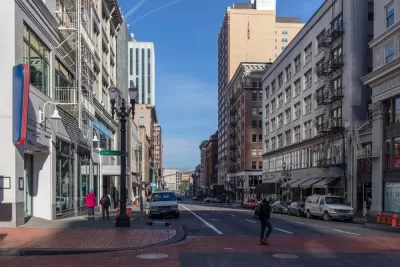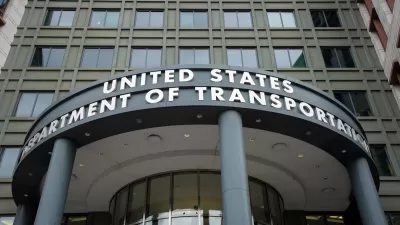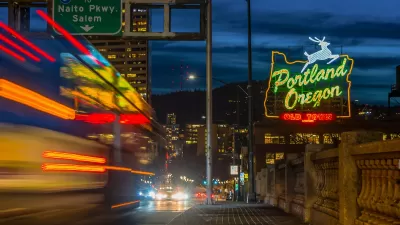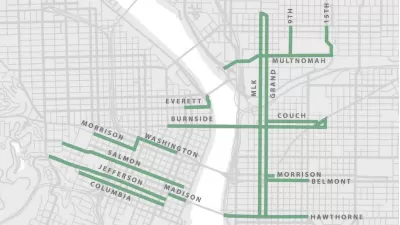The city will use revenue from a 20-cent hike in street parking fees to subsidize transit and bike share passes for low-income residents.

A new 20 cent per spot “climate fee” for street parking in downtown Portland, Oregon is “intended to remind people of ‘the externalized costs of driving (including greenhouse gas emissions, traffic congestion, and use of roadway space),’” writes Helen Huiskes in Willamette Week.
The fee was the brainchild of a city task force, which met for a year to find ways to “address the climate crisis by reducing driving, while also addressing the historic inequities in our transportation system,” says PBOT spokeswoman Hannah Schafer.
The fee is the first part of a package of strategies recommended by the task force. “Schafer says the bureau expects to raise $2 million in the first year, and use that money provide transit passes to people living in affordable housing and give Biketown rides to people receiving social services.” According to the article, “City Hall has not created exemptions for low-income drivers—although the task force suggested it try.”
FULL STORY: Parking Fee Hike Will Fund Low-Income Transit Rides

Study: Maui’s Plan to Convert Vacation Rentals to Long-Term Housing Could Cause Nearly $1 Billion Economic Loss
The plan would reduce visitor accommodation by 25,% resulting in 1,900 jobs lost.

North Texas Transit Leaders Tout Benefits of TOD for Growing Region
At a summit focused on transit-oriented development, policymakers discussed how North Texas’ expanded light rail system can serve as a tool for economic growth.

Why Should We Subsidize Public Transportation?
Many public transit agencies face financial stress due to rising costs, declining fare revenue, and declining subsidies. Transit advocates must provide a strong business case for increasing public transit funding.

How to Make US Trains Faster
Changes to boarding platforms and a switch to electric trains could improve U.S. passenger rail service without the added cost of high-speed rail.

Columbia’s Revitalized ‘Loop’ Is a Hub for Local Entrepreneurs
A focus on small businesses is helping a commercial corridor in Columbia, Missouri thrive.

Invasive Insect Threatens Minnesota’s Ash Forests
The Emerald Ash Borer is a rapidly spreading invasive pest threatening Minnesota’s ash trees, and homeowners are encouraged to plant diverse replacement species, avoid moving ash firewood, and monitor for signs of infestation.
Urban Design for Planners 1: Software Tools
This six-course series explores essential urban design concepts using open source software and equips planners with the tools they need to participate fully in the urban design process.
Planning for Universal Design
Learn the tools for implementing Universal Design in planning regulations.
City of Santa Clarita
Ascent Environmental
Institute for Housing and Urban Development Studies (IHS)
City of Grandview
Harvard GSD Executive Education
Toledo-Lucas County Plan Commissions
Salt Lake City
NYU Wagner Graduate School of Public Service





























